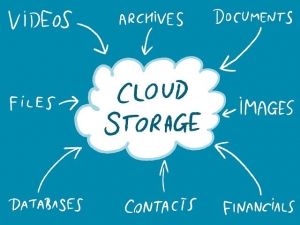
Information Stored “In the Cloud”
More and more these days, however, most of these materials are stored electronically “in the cloud,” protected by innocuous usernames and passwords. Gaining access to the materials often results in a tug of war between the personal representative and the electronic “custodian” (Facebook®, Google®, Dropbox®, iCloud®, and the like). A new law, the Florida Fiduciary Access to Digital Assets Act (the “Act”), which was passed last month and which takes effect on July 1, 2016, may clear up some of the confusion when it comes to these electronic “assets.” Under the law, a person is able to designate someone to have access and control over the person’s “digital assets.”
What Are Digital Assets
Under the new law, a digital asset is “an electronic record in which an individual has a right or interest.” One should note, however, that the term does not include an underlying asset or liability, unless the asset or liability is itself an electronic record. For example, the electronic information stored in a brokerage account would be a digital asset. The stocks, bonds, or other investments held in the account would not be.
Four Types of Fiduciaries
The Act applies to four types of fiduciaries:
- Personal representatives of decedents’ estates,
- Guardians of the property of minors or incapacitated persons,
- Agents acting under a power of attorney,
- Trustees.
Ease the Tug of War
The law has two primary purposes:
- To give fiduciaries the legal authority to manage digital assets in the same manner that they manage tangible assets and accounts.
- To provide custodians of digital assets with the legal authority to work with fiduciaries, and yet maintain the original user’s expectations of privacy.
The Owner Must Specify How to Handle Digital Assets
Under the new law, an individual may specify whether his or her assets will be preserved, distributed, or destroyed. That designation may be included in a person’s power of attorney document, or in his or her will. The designation may also be made in an online form or tool provided by the custodian (Google®, iCloud®, etc.), and if the owner of the digital asset uses such an online tool, the tool – not the will or power of attorney document – controls.
It is the fiduciary’s obligation to supply the custodian with a copy of any document granting the fiduciary rights to the digital assets. Custodians that comply with a fiduciary’s authorized request are given immunity from liability under the statutes that prohibit unauthorized access.
Is Your Will or Power of Attorney Up to Date?
Is your will up to date? Do you even have one? Have you made clear what sort of health care you desire in an end-of-life situation? The knowledgeable, caring attorney at the Jacksonville, FL law firm of Beller Law, P.L. would be happy to assist. Our friendly and accessible lawyer have in-depth knowledge of Florida and federal probate law. We can help provide the peace of mind that comes with the completion of an appropriate set of estate planning documents, and even when it comes to what to do with your digital assets. Schedule an initial consultation. Contact Beller Law, P.L. online or call us at (904) 288-4414 today.
